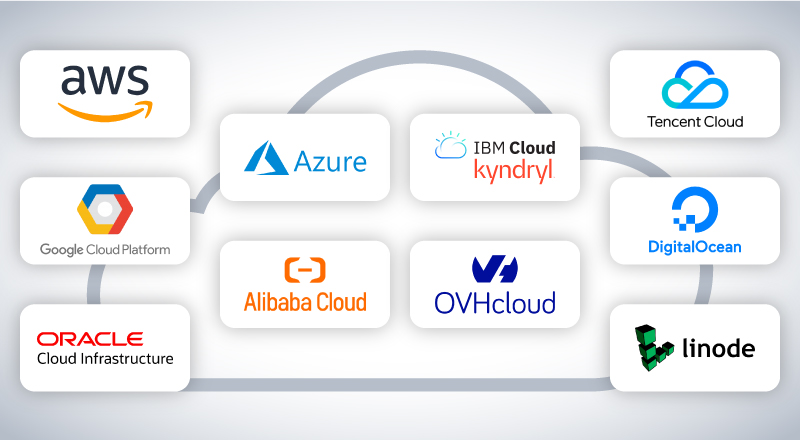The world of software development is in constant flux, evolving at a breakneck pace driven by user demand and technological advancements. Amidst this dynamic environment, the role of the DevOps engineer has emerged as a crucial linchpin, bridging the gap between development and operations teams to streamline the software delivery lifecycle.
Becoming a successful DevOps engineer requires a unique blend of technical prowess, soft skills, and a deep understanding of the principles that underpin modern software engineering practices. It’s not just about mastering tools and technologies; it’s about cultivating a mindset of collaboration, continuous improvement, and automation.
The Pillars of Success: Technical Skills
At the heart of every successful DevOps engineer lies a robust foundation of technical expertise. While specific requirements can vary across organizations, some core skills are universally recognized as essential:
- Scripting and Automation: Proficiency in scripting languages like Python, Bash, or PowerShell is paramount. These scripts form the backbone of automation tasks, from infrastructure provisioning to application deployment and configuration management.
- Cloud Computing Platforms: Familiarity with cloud computing platforms such as AWS, Azure, or GCP is non-negotiable. DevOps engineers often work within these environments, leveraging their services for scalable infrastructure, container orchestration, and serverless computing.

- Version Control Systems: Git stands as the industry-standard version control system, enabling collaborative development, tracking changes, and facilitating seamless code integration.
- Containerization Technologies: Docker and Kubernetes have revolutionized application deployment and scaling. DevOps engineers must understand how to package applications into containers and manage them effectively using container orchestration platforms like Kubernetes.
- CI/CD Pipelines: Continuous Integration (CI) and Continuous Delivery (CD) are fundamental practices in modern software development. DevOps engineers design, implement, and maintain CI/CD pipelines, automating the build, test, and deployment processes.
Beyond the Tools: Soft Skills for Success
Technical skills provide the foundation, but it’s the soft skills that truly distinguish exceptional DevOps engineers. These interpersonal attributes are crucial for fostering collaboration, communication, and problem-solving within a dynamic team environment:
- Communication: Clear and concise communication is paramount in bridging the gap between developers and operations teams. DevOps engineers must be able to articulate technical concepts effectively to both technical and non-technical audiences.
-
Collaboration: DevOps thrives on teamwork. Engineers must possess strong collaboration skills, working seamlessly with development, QA, security, and other stakeholders throughout the software lifecycle.
-
Problem-Solving: The ability to identify, analyze, and resolve issues swiftly and efficiently is essential in a fast-paced environment. DevOps engineers often face complex challenges that require creative solutions and a methodical approach.
- Adaptability: Technology evolves rapidly, demanding continuous learning and adaptation. Successful DevOps engineers embrace change, readily acquire new skills, and remain at the forefront of industry trends.
Cultivating Continuous Learning
The field of DevOps is constantly evolving, with new tools, technologies, and best practices emerging regularly. To remain competitive and stay ahead of the curve, aspiring DevOps engineers must cultivate a mindset of continuous learning:
- Online Courses and Certifications: Platforms like Coursera, Udemy, and edX offer a wealth of courses on various aspects of DevOps, ranging from fundamental concepts to specialized topics like cloud computing or container orchestration.
-
Conferences and Meetups: Attending industry events provides invaluable opportunities to network with peers, learn from experts, and discover the latest trends in the field.
-
Open Source Contributions: Contributing to open-source projects is a fantastic way to gain practical experience, collaborate with other developers, and contribute to the wider DevOps community.
Building Your Portfolio: Practical Experience Matters
While theoretical knowledge is essential, hands-on experience holds immense value in the eyes of potential employers. DevOps engineers are sought after for their ability to translate concepts into tangible results.
Here are some strategies to gain practical experience and build a compelling portfolio:
- Personal Projects: Embark on personal projects that involve automating tasks, setting up CI/CD pipelines, or deploying applications to cloud platforms. This allows you to experiment with different tools and technologies while showcasing your abilities.
-
Open Source Contributions: As mentioned earlier, contributing to open-source projects is a valuable way to gain practical experience working in real-world environments alongside other skilled developers.
-
Internships: Seek out internships at companies that embrace DevOps practices. This provides an opportunity to learn from experienced professionals and apply your skills in a professional setting.
The Future of DevOps: A Path of Continuous Evolution
The field of DevOps is constantly evolving, driven by advancements in technology and shifting industry demands. To remain successful, DevOps engineers must embrace lifelong learning and adapt to these changes.
Some key trends shaping the future of DevOps include:
- Artificial Intelligence (AI) and Machine Learning (ML): AI and ML are increasingly being integrated into DevOps practices, automating tasks like code analysis, infrastructure management, and performance optimization.
-
Serverless Computing: Serverless architectures are gaining popularity, allowing developers to focus on writing code without managing underlying infrastructure.
-
Edge Computing: The rise of edge computing brings processing power closer to data sources, creating new challenges and opportunities for DevOps engineers.
By staying abreast of these trends and continually refining their skills, DevOps engineers can position themselves for success in an ever-evolving technological landscape.







